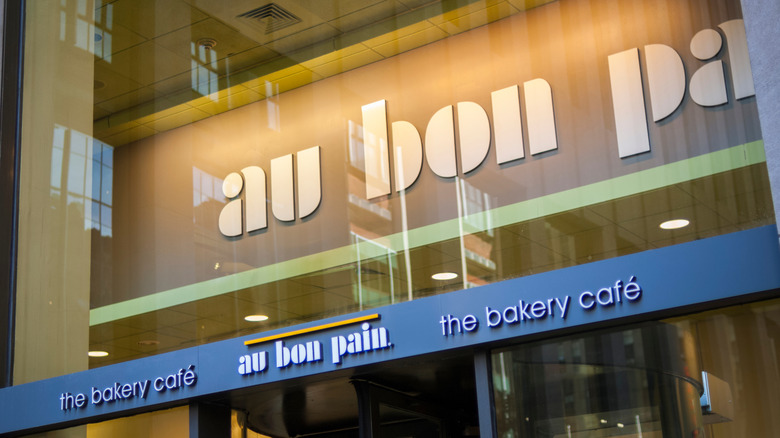This Is What Au Bon Pain Actually Means
For more than 40 years, Au Bon Pain has been a popular café and bakery chain, which now has more than 250 locations throughout the world. According to the Au Bon Pain website, the company began in 1978 when founder Louis Kane discovered a new line of French ovens while touring Boston's Faneuil Hall Marketplace. He installed one prominently in his initial store, which lead to booming business for his fresh-baked breads and pastries.
According to Funding Universe, the Au Bon Pain company purchased the St. Louis Bread Company in 1993, which eventually became Panera Bread. Panera then acquired Au Bon Pain in 2017, according to a press release, which explains why the chain restaurants are similar in nature. Panera sold Au Bon Pain in 2021 to Ampex Brands, Restaurant Business reports.
If you're a frequent visitor to the restaurant chain you might utter the name "Au Bon Pain" every so often. But what do those three little words actually mean?
Au Bon Pain's meaning has to do with bread
Those curious to know what this French phrase really means can look no further. According to the restaurant chain's website, "Au Bon Pain" simply means "from good bread." The brand goes on to explain that "bread is the foundation of a good meal" — and the foundation of the brand. It's essential for a sandwich, a quality pastry, and a soup or salad doesn't become a full meal until it's paired with bread, the company believes.
According to Au Bon Pain's website, the chain prides itself on making high-caliber foods with straightforward ingredients. Its restaurants offer breakfast all day, including sandwiches served on baguettes and bagels. Many signature and café sandwiches are available for lunch and dinner, as well as wraps, and seasonal dishes made with baked goods. And, of course, Au Bon Pain includes a full bakery section with a large variety of sweet and savory pastries, such as cinnamon chip scones and various croissants, which are a French staple.
And Au Bon Pain believes that all of these dishes come "from good bread."

